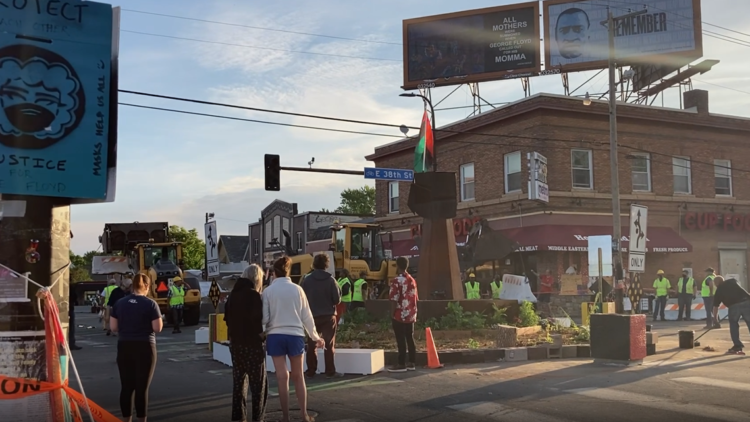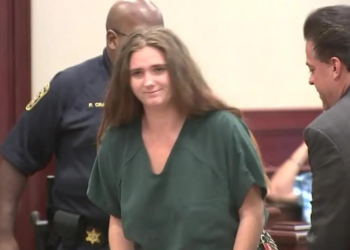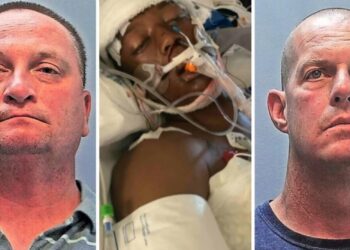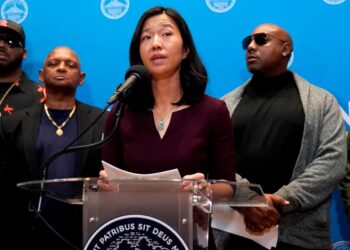On Thursday, city workers cleared away vehicle barriers and portable toilets to reopen portions of the sprawling memorial at the south Minneapolis intersection where George Floyd was killed.
However, immediately after workers finished removing barricades, protesters began parking cars and piling pallets in the streets again.
According to the Star Tribune, at a news conference, Mayor Jacob Frey said the “phased reconnection” of 38th Street and Chicago Avenue with the rest of the city had been planned for months but isn’t complete yet.
“I acknowledge that it will be a bit touch and go and difficult over the next several days,” Frey said.
While the task was complete in less than four hours, protesters who have been occupying the intersection since Floyd’s death weren’t ready to yield.
Protestors used trash bins, discarded furniture, and upended street signs to block the intersection where the city barriers had stood.
At a news conference outside Worldwide Outreach for Christ at 38th and Chicago on Thursday, Steve Floyd of Agape said the city’s alterations earlier that day were only meant to be temporary to grant buses and firetrucks access to the intersection by shrinking the garden around the first sculpture, which will remain.
A bystander yelled a brief chant of “No justice, no peace,” and people took turns speaking.
Community activist Al Flowers spoke on the incident and said, “Black lives have not really benefited from what’s been happening.”
“I’m saying as a South Side resident, it’s time to open, it’s time to open,” he added.
Jeanelle Austin, lead caretaker and founder of the George Floyd Global Memorial, said, “We didn’t know that today would be the day that the streets would be reopened … or attempted to be reopened, I should say.”
Related Story: Kendrick Johnson Case Reopened by Lowndes County Sheriff’s Office
“We’ve been working hard for over a year, volunteering our time, our hours; our families have been sacrificing to fight for justice… Reopening the streets does not help our community to heal,” she added.
“Before asking me what’s next, we have not had the time to process, and we need that.”
Leon Lyons of the security company Truth2Enlightenment said he questions the city’s motives.
“All they had to do was leave this memorial alone and leave the events that were playing here while we figure it out,” he said. “But none of this is gonna be up by the end of the night. Anything that the city brings in here will not stay by the end of the night, I guarantee you.”
On Thursday, Frey said, “This can be a critical location of gathering not just for our city, but the entire world.”
And through a phased reconnection, we can also find a way to provide the necessary social services and city services that have been missing at times over this past year. We can make sure that patrons are able to visit their local business and have full access,” he added.
Metro Transit buses had a regular and vital presence at 38th and Chicago until Floyd’s death. The intersection blocking removed a stop there for D Line rapid transit connecting Brooklyn Center and Bloomington and remains still under construction.















